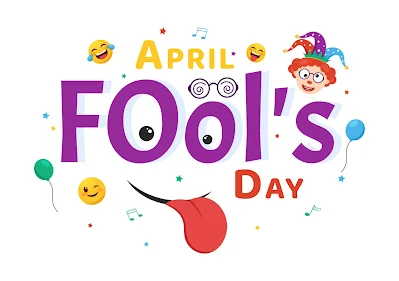April 1st is globally recognized as April Fool’s Day, a time when people indulge in pranks, jokes, and hoaxes. From playful tricks among friends to large-scale media hoaxes, this day is filled with laughter and mischief. But why is April 1st celebrated as April Fool’s Day? What is its historical background, and what notable events have occurred on this date? Let’s explore the origins, history, and significance of this fascinating day.
Origins and History of April Fool’s Day
The exact origins of April Fool’s Day remain uncertain, but historians have traced various theories and evidence that might explain its existence. Several accounts suggest that the tradition of playing pranks on April 1st may have emerged from a shift in calendars, ancient Roman festivals, and medieval European customs.
The Calendar Change Theory
One of the most widely accepted theories about the origins of April Fool’s Day is linked to the transition from the Julian calendar to the Gregorian calendar. In 1582, Pope Gregory XIII introduced the Gregorian calendar, moving the New Year from April 1st to January 1st. However, due to poor communication and resistance to change, many people continued celebrating the New Year on April 1st. Those who followed the old calendar were mocked and labeled as “April Fools.”
This theory is widely supported but lacks definitive historical documentation. Nonetheless, it aligns with reports from France and other European regions where such pranks became common during the late 16th century.
Ancient Roman and European Festivals
Some scholars believe that April Fool’s Day may have its roots in ancient Roman and medieval European festivities.
Hilaria Festival (Ancient Rome): The Romans celebrated a festival called Hilaria around the end of March, where people wore disguises and mocked each other in a day of jovial trickery. This celebration bears a striking resemblance to modern April Fool’s traditions.
Medieval European Traditions: In some parts of Europe, including England and Scotland, “Feast of Fools” was celebrated in late December or early April. During this festival, people elected a mock ruler and engaged in humorous activities. These traditions may have evolved into the April 1st prank day.
The British and Dutch Influence
By the 18th century, April Fool’s Day had become popular in Britain and the Netherlands. In Scotland, it was celebrated as a two-day event known as “Hunt the Gowk,” where people were sent on foolish errands. In England, pranks were commonly played until midday, a tradition that still exists today.
The Dutch also have a historical link to April 1st. In 1572, on April 1st, the Dutch defeated the Spanish Duke of Alba in a major victory. Some historians speculate that April Fool’s Day gained traction in the Netherlands as a day of celebration.
Historical Evidence and Documentation
While the exact origin of April Fool’s Day remains unclear, historical records suggest that the tradition has been in practice for centuries. Some documented references include:
1392 – Geoffrey Chaucer’s The Canterbury Tales: The book contains a passage mentioning a foolish event taking place on “March 32” (interpreted as April 1st). Some historians believe this to be an early reference to April Fool’s Day.
1508 – French Poet Eloy d’Amerval’s Work: A French poet mentioned a term resembling “poisson d’Avril” (April Fish), which is still used in France today to describe April Fool’s pranks.
1700s – British and Scottish Traditions: By the 18th century, April Fool’s Day was widely recognized in England and Scotland, with documented references in newspapers and books.
Notable Events on April 1st
Aside from being a day of pranks, April 1st has witnessed several significant historical events:
1976 – Apple Inc. Was Founded: On April 1, 1976, Steve Jobs, Steve Wozniak, and Ronald Wayne founded Apple, which later became one of the most influential technology companies in history.
2001 – The Netherlands Became the First Country to Legalize Same-Sex Marriage: The Dutch government officially recognized same-sex marriages on April 1, 2001, marking a milestone in LGBTQ+ rights.
1924 – Adolf Hitler Sentenced to Prison: On April 1, 1924, Adolf Hitler was sentenced to five years in prison for his role in the failed Beer Hall Putsch, a coup attempt in Germany.
1933 – Nazi Boycott of Jewish Businesses Began: The Nazi Party in Germany initiated its anti-Jewish economic policies with a boycott of Jewish businesses on April 1, 1933.
2004 – Google Introduced Gmail: Google launched its email service, Gmail, on April 1, 2004. Many initially thought it was an April Fool’s prank due to its unprecedented 1GB of free storage, but it turned out to be a legitimate service that revolutionized email.
April Fool’s Day in Modern Times
Today, April Fool’s Day is widely celebrated worldwide, with media outlets, companies, and individuals participating in elaborate pranks. Some of the most famous April Fool’s pranks include:
BBC’s 1957 Spaghetti Tree Hoax: The British Broadcasting Corporation (BBC) aired a segment about spaghetti growing on trees in Switzerland, fooling thousands of viewers.
Google’s Annual Pranks: Google has a tradition of introducing fake products and services on April 1st, keeping the spirit of humor alive.
Taco Bell’s Liberty Bell Hoax (1996): Taco Bell claimed it had purchased the Liberty Bell and renamed it the “Taco Liberty Bell,” causing nationwide confusion before revealing it was a joke.
Conclusion
April Fool’s Day remains an intriguing and fun-filled occasion with deep historical roots. While its exact origins remain uncertain, multiple historical theories suggest connections to calendar changes, Roman festivals, and medieval European customs. Beyond pranks, April 1st has also been the date of significant historical events. As the tradition continues, it serves as a reminder to embrace laughter and lightheartedness in our daily lives.

No comments:
Post a Comment